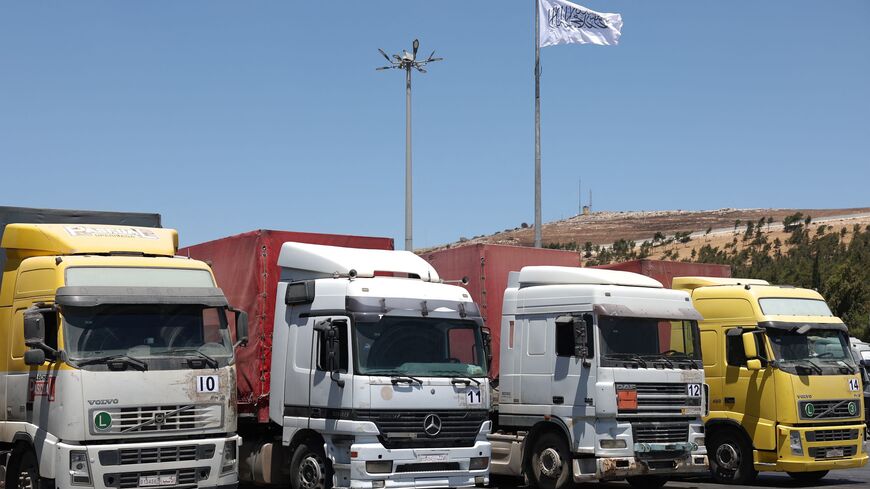WASHINGTON — The United States and its partners are closely watching negotiations between United Nations aid chief Martin Griffiths and the Syrian government over continued aid access, weeks after Russia blocked the renewal of a near-decade-long humanitarian operation in northwest Syria.
"We are prepared to return to the [Security] Council if the UN cannot work out some operation that makes sense to continue this life-saving aid," a senior administration official told Al-Monitor.
As first reported by Al-Monitor, the Syrian government told UN Security Council members in mid-July that it would grant the UN "permission" to use a border crossing with Turkey to deliver humanitarian assistance for the next six months. It stipulated the aid must be delivered "in full cooperation and coordination" with the Syrian government.
Experts quickly warned that the Syrian government, given its track record, could divert or steal aid destined for rebel areas in northwest Syria.
“You cannot allow the fox to be responsible for the hens,” said Zaher Sahloul, president and co-founder of MedGlobal, an organization that delivers aid to conflict zones. “The people in this area do not trust their lives to a regime that has been bombing them."
Syria's northwest, including the embattled Idlib province, is considered the last pocket of rebel resistance after 12 years of civil war between Assad’s forces and the opposition. More than half of its 4.5 million inhabitants are internally displaced, with many living in makeshift camps along the sealed Turkish border.
It’s hard to imagine the regime allowing humanitarian assistance to reach those civilians in a way that is consistent with international standards for impartiality and open access, said Mona Yacoubian, vice president of the Middle East and North Africa center at the US Institute of Peace.
“The regime is embarking on a PR move to attempt to appear open to working with the international community, but by setting conditions that are simply unacceptable,” Yacoubian said.
The debate over aid access comes as the heavily sanctioned Syrian government is desperate to chip away at its international isolation. The Arab League voted to readmit Syria this May, in what was seen as the culmination of regional efforts to end Assad’s pariah status by some key US partners, including Saudi Arabia and the United Arab Emirates.
The Biden administration says it doesn't support Arab states’ re-engagement with Assad but shares the same goals, including expanding humanitarian access into Syria.
Aug. 13 will be a test of the regime's intentions on aid delivery, said Steven Heydemann, a senior nonresident fellow at the Brookings Institution Center for Middle East Policy.
Following the deadly earthquakes that struck Turkey and Syria in early February, the Syrian government agreed to reopen two previously shuttered border crossings, Bab al-Salam and al-Ra’ee. That permission is due to expire in less than two weeks unless Damascus extends its approval.
“The hope is that governments that have hinted over the last year or so that they have alternative plans in place in the event of a [Russian] veto would actually begin to operationalize those plans,” said Heydemann.
For years, American and European officials have quietly explored alternatives to the UN’s humanitarian response in Syria but have been reluctant to discuss those efforts publicly, fearing that doing so would send a message to Assad's ally Russia that cross-border assistance is no longer needed.
Speaking to Al-Monitor on condition of anonymity, a Western diplomat with knowledge of the discussions said there is “prudent humanitarian contingency planning," including through an existing British-led pooled fund, but Council members are waiting for the outcome of talks in New York.
"What we want is to focus on getting unfettered, UN cross-border aid," the diplomat added.








